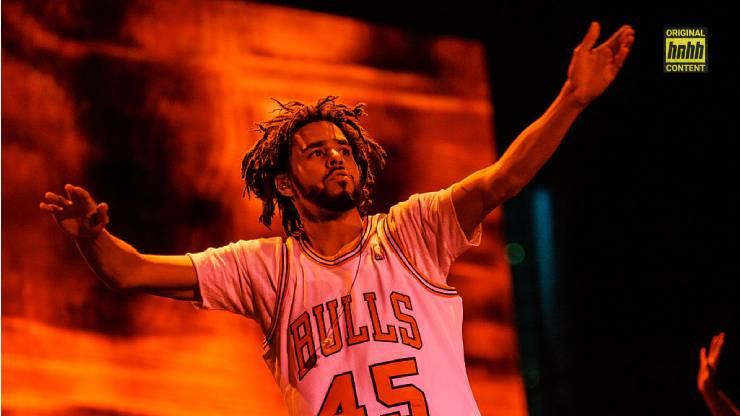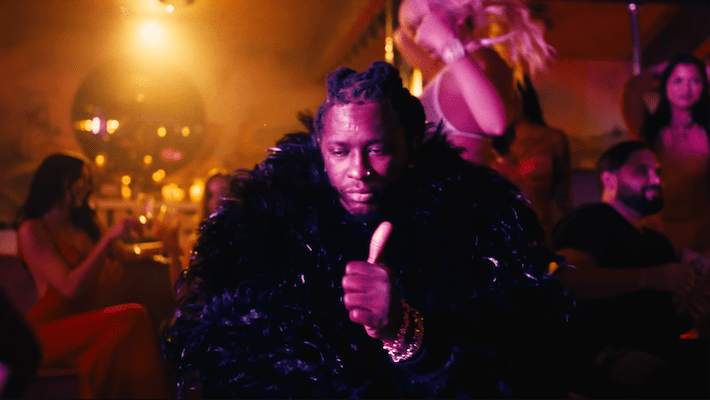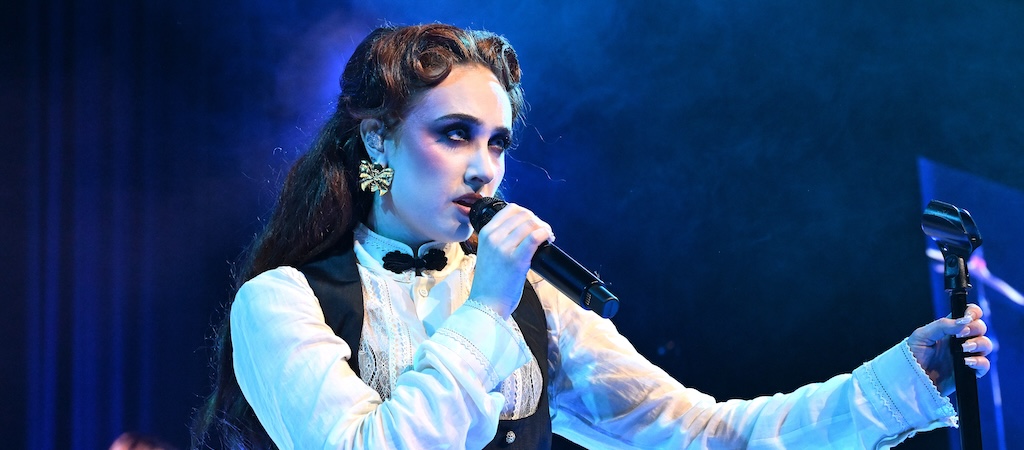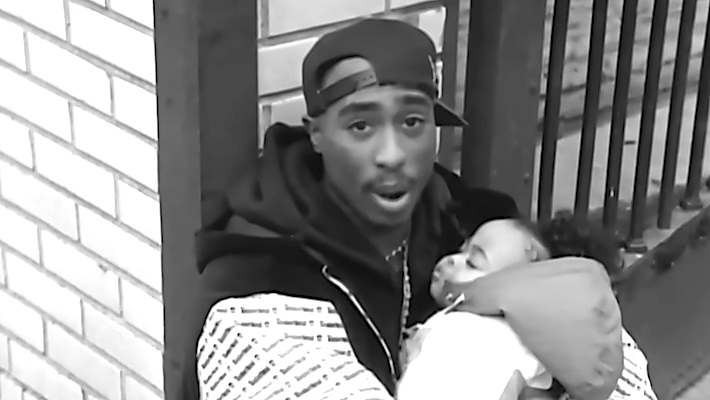Off his acclaimed 2014 Forest Hills Drive album, J Cole’s “No Role Modelz” puts exclamation marks on a longstanding struggle in hip-hop.
After admitting that he shed tears confronting the emotional scars left by his estranged father in the song “Breakdown,” J Cole says the following:
I reflected on my younger days
When it was just me and my brother and my mother played
, ’cause no other man bothered
Not even my biological, it never seemed logical
But I accepted it ’cause I ain’t know no better
Thought I was brighter than a Polo sweater
No pops was like Martin with no Coretta
So many things you could have told me
And saved me the trouble of lettin’ my mistakes show me
I feel like you barely know me
And that’s a shame ’cause our last name is the same
That blood type flowin’ through our veins is the same
Jermaine’s words regrettably reflect a recurring theme in urban America and hip-hop. A theme he addresses on his multi-platinum single “No Role Modelz,” produced by and Sonic Beats off his critically acclaimed album Forest Hills Drive. The absence of male influence and subsequent chain of events breed toxic hyper-masculinity in the form of destructive behavior and rhetoric. Rappers frequently spew malice-filled bars as a displaced mode of expression. Frustration boils over in facing an everyday reality; pivotal figures weren’t there to help navigate the web of social complexities that exist for life as a black man.
of this theory can also be found in iconic lines from emcees like 2 Pacs in “Dear Mama.” “No love for my daddy ’cause the coward wasn’t there,” raps Pac. “He passed away and I didn’t cry, cause my anger wouldn’t let me feel for a stranger.” Likewise for Jay-Z, who on “Hova Song” shares the absence of his father as well: “Retrospect, ain’t been the same since I lost my dad/He still alive, but still f*** you don’t cross my path.” Jay-Z has been open about the love for his children, his struggles with fatherhood and the challenging relationship with his own father. With seemingly apparent enmity, HOV frequently mentioned his father in verses during the early parts of his catalog. Later, his music explored how the fractured relationship with his father may have compromised his ability to raise a child by planting seeds of doubt about the rapper’s capacity to truly love.

Tabatha Fireman/Getty Images
Like 2 Pac, J Cole and Jay-Z – many rappers have shared their stories. For better or worse, the matter of fatherhood has always been a fixture in hip-hop. Tracks about fathers tend to show us rappers’ most vulnerable and sensitive sides. Reflections on their father’s presence (and lack thereof) or the proposition of their own fatherhood understandably evokes great emotion. What’s ironic about this, is that the rappers themselves are unfairly labeled as role models and thrust into a position to speak to and for young men with arduous circumstances about them. This is a heavy weight to carry for someone admittedly broken, in part, by their past. Sharing their emotional bruises for the world to see while simultaneously acting as an ointment for the healing of others.
Cole might have shifted focus away from mainstream singles but he’s retained the same commercial success while continuing to deeply resonate with his fans. His openness is a tool that helps him connect with the masses. In a relatable way, Cole frequently addresses issues that affect the black community in his music. From the war on drugs to generational wealth and international conflict. One of the things I respect most about Cole is his commitment to expressing a message. Even with a fair amount of chaotic toxicity baked into this consciousness; I mean, he’s still human. Nevertheless, he uses music as a tool to inform and hopefully inspire change and doesn’t seem to take his platform for granted. Look no further than his Grammy-nominated 2019 single Middle Child for an example of this.
“Too many niggas in cycle of jail
Spending they birthdays inside of a cell
We coming from a long bloodline of trauma
We raised by our mamas, Lord, we gotta heal
We hurting our sisters, the babies as well
We killing our brothers, they poisoned the well
Distorted self-image, we set up to fail
I’ma make sure that the real gon’ prevail”
As Cole expresses in these lines, there is an undeniable connection between the absence of fathers, emotional trauma and men suppressing that trauma in ways that may be destructive to themselves and their communities. Not to mention unquestionably destructive to women in their proximity. He pleads for men to heal from these wounds. He speaks on men being raised by their mothers and hurting sisters because of a poisoned self-image. Cole’s struggle, like the struggle of many rappers, is tied to his tainted view of masculinity. Many times in hip-hop culture, manhood is reduced to a mountain of sexual exploits and the thought of women being expendable.
In “No Role Modelz,” J. Cole raps about his weakness when it comes to love. Though the true meaning lies below, on the surface he explores the duality of women in Los Angeles along with the overall nature of people in the city. Painting them as fake. This love-hate relationship and dichotomy of Cole’s stance for and against these things fuels the song. His disdain for frivolous women is juxtaposed by his thirst in pursuing them. As he says in the song “one time for my LA sisters, one time for my LA hoes.” Uplifting and degrading at the same time. This is all again tied together by his lack of a guiding presence or a role model in his youth. It is a battle Cole is trying to unpack and understand throughout the song. How to perceive and treat women. “I don’t want no bitch from reality shows, out of touch with reality hoes” and “don’t save her, she don’t want to be saved,” further speak to this idea.

Bryan Steffy/Getty Images
For some, role models come from male figures on television, sometimes even the music industry. In a reference to the 1990s sitcom Fresh Prince of Bel-Air, Cole begins this song speaking about uncle Phil, a fatherly character on the show. He starts with this powerful statement, “First things first, rest in peace uncle Phil for real you’re the only father that I ever knew I get my bitch pregnant I’m going to be a better you.” Here Cole makes it known that the lack of a figure in his life led him to turn to other examples of manhood, even if they’re fictional. He reiterated that absence of his own father while aspiring for more from himself as a man. Yet in the midst of all this, maybe uncontrollably, he is pulled back into a toxic mentality – referring to the woman he may get pregnant as a “b*tch.” In part, Cole speaks to the undeniable domino effects caused by the absence of fathers in the home and community. Like many men who dealt with this upbringing, in theory, Cole wants to construct a better life for his own seed. He references the relationship he wants with women by mentioning both Aunt Viv from Fresh Prince and Will & Jada. “I want a real love, dark-skinned Aunt Viv love – that Jada and that Will love.”
As much as the song was a smash hit, it is also a cultural and self-analysis by Cole. The effect of missing fathers trickles down into so many behavior patterns and social perceptions and then further onto those who are torn by those inherited traits. “No Role Modelz” captures the complexity of this issue like few songs have and does do while also being a feel-good party track. This is the genius of Jermain Cole.



